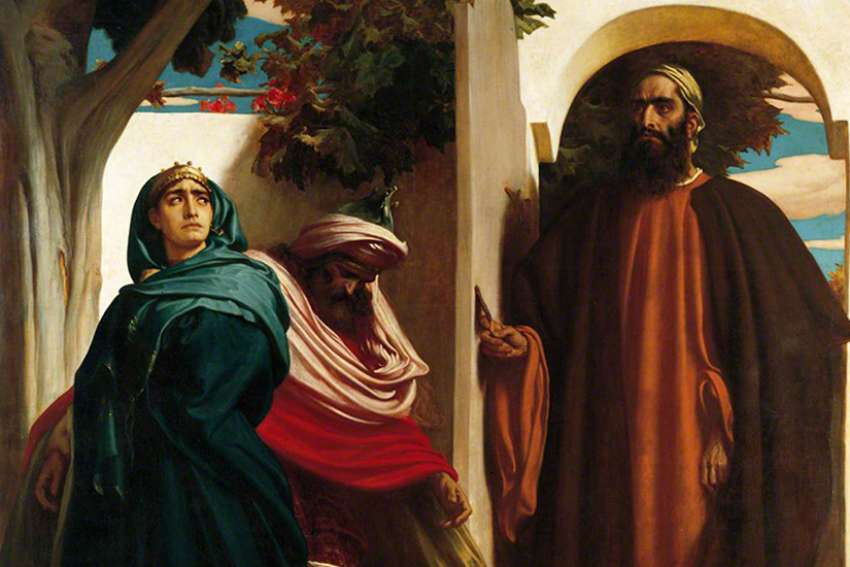Giving up and throwing in the towel is one of life’s greatest temptations.
Who has not felt discouraged and defeated at one time or another? Sometimes we might feel that we have no more strength or resolve to face the challenges at hand. We are most vulnerable at this point, but paradoxically, it is the point at which God can and often does come to our aid.
During his flight from Jezebel and Ahab, Elijah was exhausted and out of strength — he just couldn’t go on. He lay down and begged God to take his life, but this was the moment when God stepped in.
An angel of the Lord prepared a picnic for Elijah in the wilderness. He awakened Elijah and ordered him to eat the cake that had been prepared for him and to drink the jug of provided water. After sleeping for a while, the process was repeated as a second course was prepared. He then had the strength to complete his journey.
Does this sound far-fetched or impossible? Only if we want it to be. This resonates with many stories in the Old Testament of God providing food and water to the people when they were in trouble. It calls to mind the manna, quail and water from the rock provided by God during the Exodus journey through the wilderness. The well-known verse in Psalm 23 celebrates God as the one who prepares a feast for the psalmist in the presence of his enemies. The bottom line: God has our back and will give us what we need to complete the journey.
Staying power is a critical issue in our own time. There is a tendency to cut and run whenever we meet difficulties. People routinely underestimate themselves and their capabilities. Far more serious, however, is the loss of faith and trust in the providence and care of God. Often God does not even figure into the equation.
Few people have the stamina to make life’s journey alone. When we recognize our own need and ask God to give us the strength and sustenance we need, the path will open before us.
Our faith is not about being good but being imitators of God. There is only one way to imitate God — unceasing kindness, compassion and forgiveness. We seldom think of the possibility of offending or grieving the Spirit, but it makes sense. After all, theologically the Spirit is a person of the Trinity.
We grieve the Spirit by malice, unkindness, unforgiveness, gossip, anger, cruelty and bitterness. We cannot expect the Spirit to work through us or grant us its blessings if we create a barrier of negative energy with us.
The crowd was not happy with the assertion of Jesus that He was the bread that came down from Heaven. They took this in a completely literal sense, so of course it seemed ludicrous. They knew Jesus and His family — how can He have come down from Heaven? Jesus had two responses for them: Only those who have allowed themselves to be guided and taught by God will be able to see beyond the literal and be drawn to Jesus. We cannot reason our way to God or “figure God out.”
To those who approach Jesus, He promises He will provide sustenance that will never be exhausted. The manna in the desert was temporary and fleeting. The things that we often use to keep us going will at some point let us down. But we need not rely strictly on our own powers and efforts.
Jesus sustains us with the life-giving Spirit of God, which will never diminish or let us down. This is what the Gospel of John refers to as eternal life, which is not something we only experience after death. It is a quality of life made possible by being connected to the divine source. The strength and sustenance that Jesus provides will carry us through life’s journey and well beyond.
We are not alone in our journey unless we deliberately choose to be. The Lord offers to be our food for the journey. Will we accept the invitation?


